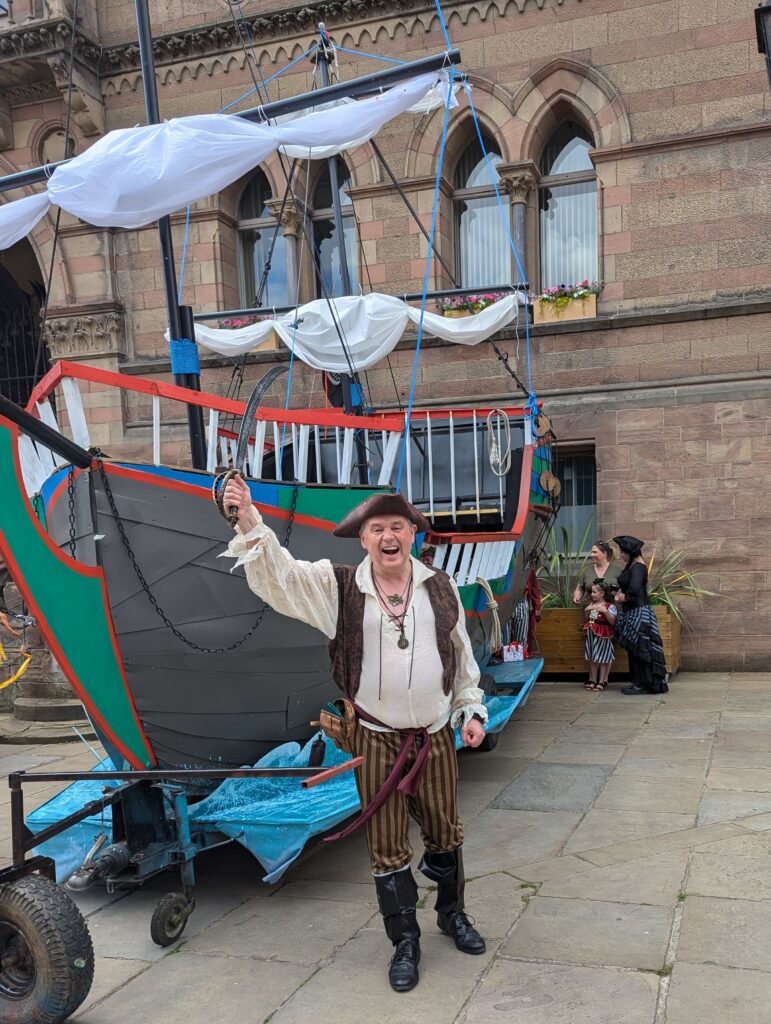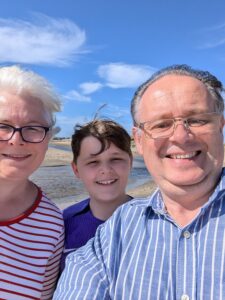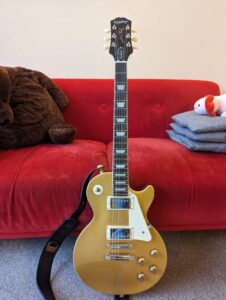I am now recovering from my long COVID, I can get out and about more now without getting exhausted – I even went on holiday to Rhosneigr for a week in the summer! I have fewer days feeling absolutely awful. This was in part a result of the local long COVID clinic, the instructor for the long COVID exercise classes I attended mentioned that some long COVID sufferers had issues with “mast cell activation syndrome” (MCAS) which can be addressed by dietary changes – essentially a low histamine diet. This has worked for me although I can’t drink alcohol or eat mature cheeses which has been a bit of a blow.
I have been working with the Humanitarian Data Exchange for UNOCHA for the past year which I have really enjoyed, that contract comes to an end shortly so I will be looking for freelance work. I’m also thinking more seriously about retiring. As a result of having paid work I felt able to spend freely, I bought myself a new guitar (an Epiphone Les Paul Standard gold top) and an electric bike (a Rayleigh Motus) – the electric bike has been brilliant and helped me get out and about. I think this is part of the reason I can think about retiring, other middle aged men would buy a Gibson Les Paul and a motorbike for x10 the cost of my purchases!
This year I reviewed 13 books. I started the year with Her Space, Her Time by Shohini Ghose which was about a history of women in physics, generally astrophysics and cosmology in the late 19th and 20th centuries. I followed this with A Philosophy of Software Design by John Ousterhout which provided an alternative view to how best to design software. Also in this theme was Beautiful Code edited by Andy Oram & Greg Wilson, an edited volume of essays on pieces of code that their authors were particularly pleased with. In the computing theme I also read The Rust Programming Language by Steve Klabnik and Carol Nichols – I’m currently learning Rust. I actually read this book online which is a novelty for me.
My favourite book of the year was An Immense World by Ed Yong this is about animal senses, I picked it up slightly reluctantly thinking that there wasn’t much to say about the five senses and that everything was pretty well known by now. I was wrong on both accounts! I enjoy Yong’s writing, this combined with the subject matter made it my favourite.
I had a bit of an Alice Roberts binge. I read Ancestors, about burials in prehistoric Britain, a few years ago. This year I read Buried and Crypt which are partner volumes to Ancestors which cover burials in the first millennium and the first half of the second millennium respectively. Buried has a secondary theme of migration and Crypt of disease and injury. I also read Anatomical Oddities by Alice Roberts – I must admit this one didn’t really appeal to me. It is a collection of anatomical illustrations with some commentary, Roberts is a very fine illustrator but the text for the book was incoherent.
In the past I have mainly read on the history of science with most material relating to the 15th century and onwards. Roberts’ books got me interested in the earlier history of Britain. I started with Britain BC by Francis Pryor which covers Britain prior to the Roman invasion. Echolands by Duncan MacKay covers Boudica’s revolt against the Roman’s in 60-61AD, it’s a sort of history/travelogue combination which I found very engaging. Roman Britain – A New History by Guy de la Bédoyère is a beautiful, encyclopaedic coffee table book which covers the whole of the Roman occupation of Britain. I am now interested in the late Iron Age coinage in Britain.
To finish with a couple of books which didn’t follow any theme. I read Daphne Draws Data by Cole Nussbaumer Knaflic which is a book about data visualization for children – I reviewed this at the request of the author. I rather enjoyed it and hope to be able to borrow some of the illustrations for my own presentations. Sound tracks by Graeme Lawson is a history of musical instruments via archaeological artefacts. What struck me here is how little of musical instruments survives (usually only metal parts), and also how long sophisticated flutes and pipes have been in existence.
I took part in the Chester mid-summer parade, as a pirate – as I have done for the last few years – I was able to sit down a lot of the time which was a big help.

Our son is now at online school (Minerva’s Virtual Academy), he is settling in well but getting to this point was not voluntary and was traumatic.
We’re looking forward to a new year of improving health, semi-retirement and lower stress education!



